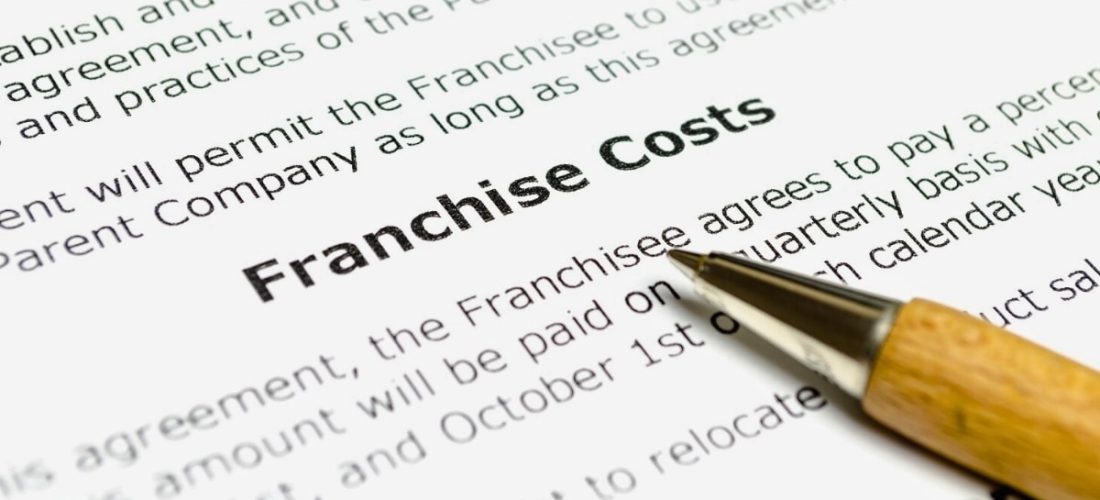What are the costs associated with operating a franchise? Franchising is a popular venture for entrepreneurs in the United States. According to Statista, there were nearly 800k franchises in the country, generating almost $830 billion, about 3% of the nation’s GDP. Operating a franchise can be an exciting and potentially lucrative business venture, but it’s crucial to understand the costs involved before diving in. Franchising offers unique opportunities for entrepreneurs to start their own businesses with established brands and proven business models.
As a franchisee, you gain access to a support system that includes training, marketing assistance, and ongoing guidance from the franchisor. However, this support comes at a cost. In this article, we’ll explore the various costs associated with operating a franchise, including typical franchise fees, additional costs, and financing options. So, you can clearly understand what it takes to own a franchise and whether it’s worth the investment.
What is Franchising?
Franchising involves an individual, known as the franchisee, obtaining the rights to run a business using the branding and systems of an established company. In return, the franchisee typically pays an initial franchise fee and ongoing royalties with an agreement. This arrangement allows franchisees to start their own business with the support of a well-known brand and a tested business model, reducing some of the risks of starting a new, independent venture.
Franchisees benefit from the franchisor’s experience, training programs, marketing support, and ongoing assistance. Meanwhile, franchisors expand their brand’s reach and revenue by leveraging the franchisees local market knowledge and investment, creating a win-win situation for both parties.
What Is a Franchise Fee Exactly and What Does Franchise Fee Cover?
A franchise fee is the upfront payment you make to a franchisor for the rights to operate a business using their brand and business model. This fee unlocks a range of valuable benefits and resources provided by the franchisor. Paying the franchise fee is a key step in starting your franchise, giving you the tools and support you need to succeed.
Here’s what the franchise fee typically covers:
- Brand Usage: Brand usage means you get to use the franchisor’s name, logo, and trademark. This allows you to benefit from their established reputation and brand recognition, giving your business a trusted identity from day one.
- Training Programs: Training programs provide you and your staff with the initial training needed to run the business effectively. This includes hands-on learning and guidance on daily operations, ensuring everyone is well-prepared to deliver the brand’s standards from the start.
- Marketing Support: Marketing support gives you access to professional marketing materials and includes your business in national or regional advertising campaigns. This helps you attract customers and build brand awareness, ensuring your franchise starts strong and continues to grow.
- Operational Support: Operational support means you receive ongoing help and guidance from the franchisor to ensure your business runs smoothly. This continuous assistance helps you navigate challenges and maintain high standards, giving you confidence and peace of mind.
- Proprietary Systems: Proprietary systems give you access to the franchisor’s established systems, processes, and technology. This means you can efficiently manage operations using proven methods and tools, setting your business up for success from the start.

Some Factors That Influence Franchise Fees
Several factors can influence the franchise fee for a particular brand. The popularity and reputation of the brand play a significant role, as well as the demand for franchises in a specific industry. Additionally, the size of the territory you’ll be operating in and the level of support provided by the franchisor can impact the fee. It’s important to carefully evaluate the value you’ll be receiving for the franchise fee. Consider the following:
- The Strength of the Brand: The strength of the brand is crucial because a well-known and respected brand can attract customers more easily. This built-in brand recognition can give your franchise a significant head start in the market, making it easier to build a loyal customer base.
- The Level of Support Provided: The level of support provided is essential because comprehensive training, marketing, and operational support can justify a higher franchise fee. This extensive support helps ensure your business runs smoothly and effectively, increasing your chances of success.
- The Potential for Success in Your Chosen Market:The potential for success in your chosen market is vital. It’s important to assess how well the franchise could perform in your specific area. Understanding local demand and competition will help you determine if the franchise is a good fit and has the potential to thrive.
While a higher fee may seem intimidating at first, it can be justified if it means partnering with a well-established brand and receiving a comprehensive support system. This investment upfront can pay off in the long run by providing you with the resources and backing you need to succeed in your business venture.
Typical Franchise Fees for Different Industries
Dive into what are the costs associated with operating a franchise with a breakdown of typical franchise fees across different industries. Explore the varying initial investments required for franchises in fast-food restaurants, retail stores, and service-based businesses. Understand the financial landscape of franchising and how industry-specific fees can impact your investment decisions. Here are some examples of franchise fees in different industries:
- Fast Food Restaurants: Franchise fees for well-known fast-food chains can vary widely, typically falling between $10k to $50k or even higher. These fees not only cover the initial training but also provide ongoing support from the franchisor, ensuring you have the resources they need to succeed in their venture.
- Retail Stores: Franchise fees for retail businesses can be quite diverse, depending on the brand and store size. They usually range from $10k to $100k or even more. This wide range reflects the different opportunities available and the level of investment required to join a particular retail franchise.
- Service-Based Businesses: Franchise fees for service-based businesses, like cleaning companies or home repair services, can vary widely, typically falling between $5k to $50k or higher. These fees not only cover essential training but also provide ongoing support for starting and managing the business, ensuring you have the necessary resources and guidance to thrive in their industry.
Additional Costs Involved in Operating a Franchise
Turn up what are the costs associated with operating a franchise beyond the initial franchise fee. Explore the additional expenses involved in running a franchise business, from royalties and advertising fees to equipment and inventory costs. Gain insights into the financial considerations that come with operating a franchise and how to effectively budget for ongoing expenses. So, here are some of the common additional costs you may face:
Royalty Fees
Most franchisors ask franchisees to pay ongoing royalty fees, often calculated as a percentage of their revenue. These fees play a crucial role in sustaining the support and resources provided by the franchisor, ensuring franchisees continue to receive guidance and assistance throughout their business journey.
Advertising and Marketing Fees
Franchisees typically contribute to a national or regional marketing fund to bolster brand promotion. These fees, which can vary from a few hundred to several thousand dollars per month, are vital for spreading awareness and attracting customers to franchise locations.
Real Estate or Lease Costs
When setting up a franchise, factoring in lease or real estate costs is essential, particularly if you don’t own a suitable location. The expense of leasing or purchasing real estate can be considerable, particularly in areas with high demand. It’s crucial to budget carefully to ensure your location meets both your operational needs and your financial capabilities.
Inventory and Equipment
Equipment and inventory expenses may vary based on your business’s nature, requiring investments in fixtures, equipment, and stock. The costs associated can fluctuate significantly depending on the industry and the specific requirements outlined by the franchisor.
Staffing
Budgeting for employee salaries, benefits, and training is crucial when considering staffing and payroll expenses. Employment costs may fluctuate based on the industry and the prevailing job market conditions in your locality.
Payment Processing
Payment processing is a critical aspect of running a franchise, as most businesses accept credit and debit card payments. However, it’s essential not to overlook the associated surcharge fees, which can range from 1.70% to 3.05%. These costs are typically passed down to customers, so it’s important to factor them into your pricing strategy to ensure profitability while providing convenience to your customers.
Financial Assistance for Franchise Ventures
Explore financial assistance options to help navigate what are the costs associated with operating a franchise. Discover funding solutions tailored to franchise ventures, ensuring you have the support needed to manage initial expenses and ongoing operational costs effectively. Whether you’re a new franchisee or looking to expand your existing business, find the financing you need to thrive in the competitive franchise landscape.
- Bank Loans: Bank loans are a common financing option for franchise businesses, with many banks and financial institutions offering tailored loan packages. These loans often necessitate collateral or a personal guarantee and typically mandate a robust business plan and financial projections for approval.
- Small Business Administration (SBA) Loans: Franchisees can benefit from Small Business Administration (SBA) loans, which are tailored loan programs offered by the SBA. These loans typically feature favourable terms and can furnish the essential capital required to initiate or expand a franchise venture.
- Personal Savings or Retirement Funds: Opting to use personal savings or retirement funds can be an alternative to taking on debt when financing your franchise business. While this approach eliminates the need for external financing, it does come with personal financial risks. Careful consideration and financial planning are essential to ensure that using personal funds aligns with your long-term financial goals and risk tolerance.
Wrapping Up
Understanding what are the costs associated with operating a franchise is essential for prospective franchisees who are going to dive into a business realm. From franchise fees to ongoing franchise expenses like royalties and marketing fees, a thorough comprehension of these costs ensures informed decision-making and effective financial management. By carefully evaluating and budgeting for these expenses, franchise owners can position themselves for success in the competitive franchise landscape. So, you should consider the franchise operation costs while you want to start a franchise.


Add a Comment